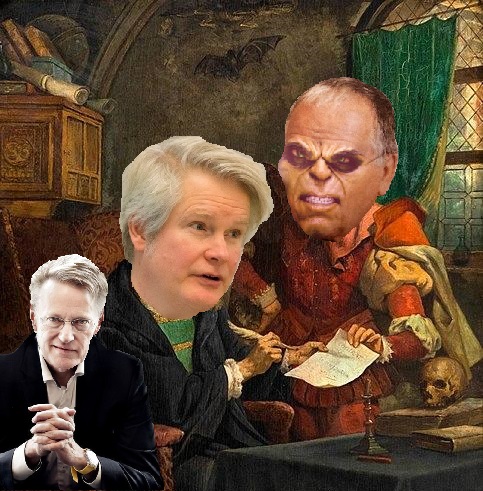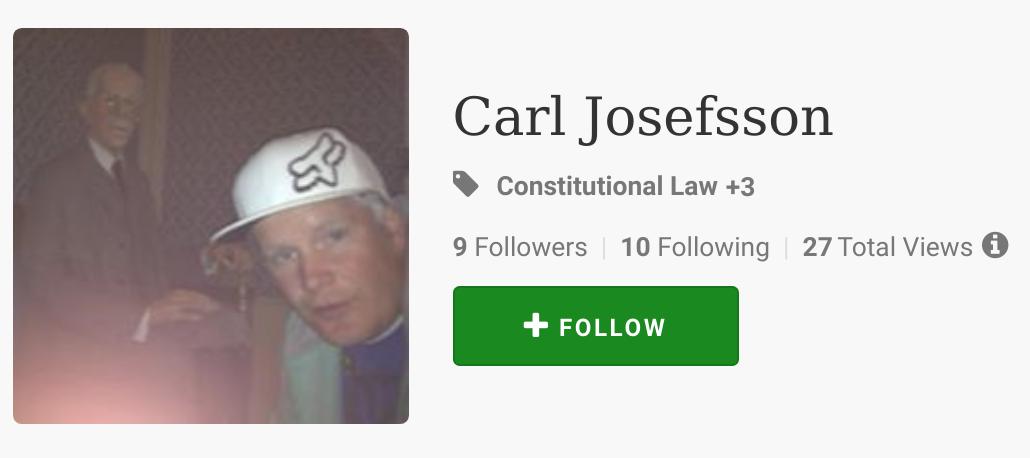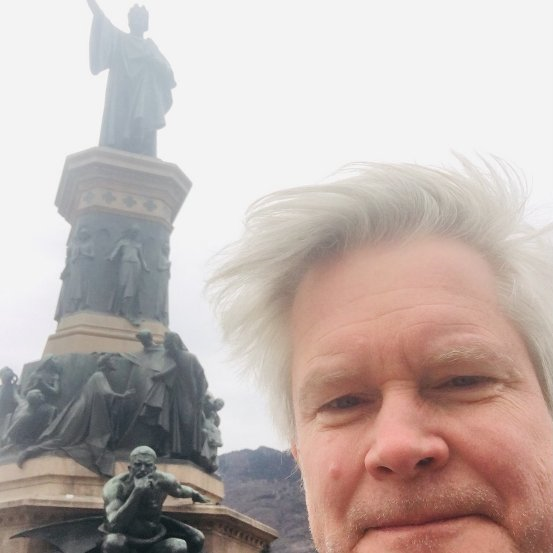

Carl Josefsson's "deal" with the EPO seems to be a Faustian pact.
As we noted in the last part, since Josefsson's arrival in Haar in March 2017, there haven't been many signs of a lively Habermasian discourse in the corridors of the EPO's Boards of Appeal in Haar.
"EPO insiders also report that Josefsson studiously avoids getting involved in any "political" discussions about the EPO's glaring governance deficits, including those affecting the Boards of Appeal."The only things the new President of the Boards of Appeal seems to care about nowadays are production figures and "timeliness". His carefully honed reports and PR releases are full of the usual insipid, self-congratulatory managerial waffle and utterly devoid of any kind of inspiring content.
EPO insiders also report that Josefsson studiously avoids getting involved in any "political" discussions about the EPO's glaring governance deficits, including those affecting the Boards of Appeal.
"In addition to this there are other perks and benefits, such as top-notch private health insurance, travel expenses and generous daily allowances for duty missions."But what exactly does Josefsson get out of the Faustian pact which he has concluded with the mafia-like entity that controls the EPO?
The answer to this question seems to lie in the lucrative tax-free salary that he receives as President of the Boards of Appeal.
This is estimated to be of the order of EUR 20K a month by the time that all available fringe benefits such as an expatriation allowance are factored in. In addition to this there are other perks and benefits, such as top-notch private health insurance, travel expenses and generous daily allowances for duty missions. And of course, for good measure, there are also the EPO's gold-plated pension arrangements for senior managers.
 By anybody's standards that's quite an attractive compensation package and one that compares very favourably with the average judicial salary in Sweden.
By anybody's standards that's quite an attractive compensation package and one that compares very favourably with the average judicial salary in Sweden.
According to available information, the average salary for a senior judge in Sweden is estimated to be of the order of SEK 690 000, which is approximately equivalent to € 68 000 at current exchange rates.
"Based on the available data, it is estimated that Josefsson's career move to Haar may have enabled him to boost his take-home salary by as much as a factor of four or five, perhaps even more."That's a gross salary figure and it should not be forgotten that Sweden is a relatively high-taxation jurisdiction.
Based on the available data, it is estimated that Josefsson's career move to Haar may have enabled him to boost his take-home salary by as much as a factor of four or five, perhaps even more. Nice money if you can get it.
By way of comparison, back home in Sweden journalists - including Josefsson's old buddy Per Wirtén - were sounding the alarm in 2015 about the low levels of remuneration for freelancers: "Freelancer rates have fallen so much that much of quality freelance journalism is under threat and its practitioners with it."
According to a report in the Swedish press, the post-tax income of many freelance journalists left them under social security benefit levels.
Translation into English [PDF] below:
SOURCE: https://www.svt.se/kultur/medier/flera-frilansars-arvoden-pa-socialbidragsnivaer
Alarm: freelancers' remuneration at social welfare benefit levels
Per Wirtén, Annina Rabe and Dan Josefsson are among those taking part in the appeal.
Published 6 November 2015
20 freelance journalists in a joint protest against the industry's conditions.
Many are now working on remuneration rates below social welfare benefit levels, according to a new survey.
"Freelancer rates have fallen so much that much of quality freelance journalism is under threat and its practitioners with it."
So write 20 freelance journalists, including names like Dan Josefsson, Per Wirtén and Annina Rabe, in a joint appeal in Expressen.
The call comes in connection with a new Sifo survey from the Journalists' Union, which shows that four out of ten freelancers in the union now have extra jobs on the side to make a living.
Wages at subsistence level
The average income for a freelance journalist is SEK 15,000 after tax, according to the survey. But many members fall below the social security benefit level (SEK 3,880 + rent), when they declare what they are left with after taxes and contributions.
29% have less than SEK 10,000, and 12% less than SEK 5,000.
According to the survey, more and more journalists are changing professions, while many are considering it because of increased stress and tougher conditions. At the same time, the pressure to deliver quickly is affecting quality, according to the majority of respondents.
"It is difficult to argue that the meticulous, ethical and responsible freelance journalism is cut off from ordinary economic logic. We want media owners, financial managers and publishers who have power over freelance budgets to take responsibility," the freelancers write in their statement.
The survey is based on a Sifo poll commissioned by the Journalists' Union.
622 out of 1,832 registered freelance members responded to the survey.
"Whatever "Calle" may have sold his soul for, the general consensus among EPO insiders is that it certainly isn't rock 'n' roll."In fairness to Josefsson, it should be pointed out that he receives his tax-free salary through lawful channels rather than under the table as in Kongstad's case.
Josefsson himself appears to have become rather reclusive since taking up his position at the EPO. He no longer uses his Twitter account and he has not been seen to participate in any public discussions about legal or political affairs.
The only personal presence which he still maintains online these days is on the Internet music platform Bandcamp, where he reveals himself to be a heavy metal fan.
Whatever "Calle" may have sold his soul for, the general consensus among EPO insiders is that it certainly isn't rock 'n' roll.

Heavy metal fan Josefsson may have sold his soul – but not for rock 'n' roll…